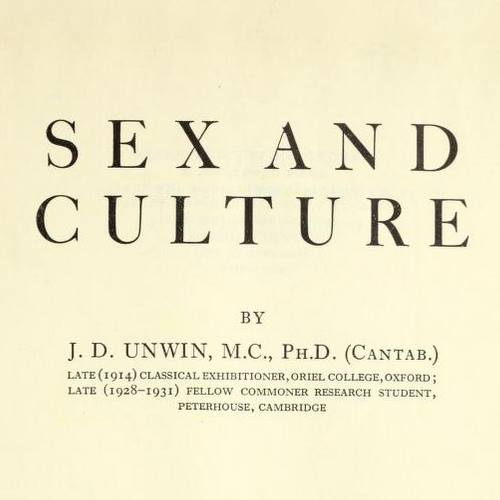
In Sex and Culture (1934), Unwin studied 80 primitive tribes and 6 known civilizations through 5,000 years of history and found a positive correlation between the cultural achievement of a people and the sexual restraint they observe. “Sex and Culture is a work of the highest importance,” Aldous Huxley wrote:
Unwin’s conclusions, which are based upon an enormous wealth of carefully sifted evidence, may be summed up as follows. All human societies are in one or another of six cultural conditions: zoistic, manistic, deistic, rationalistic, expansive, productive. Of these societies the zoistic displays the least amount of mental and social energy, the productive the most. Investigation shows that the societies exhibiting the least amount of energy are those where pre-nuptial continence is not imposed and where the opportunities for sexual indulgence after marriage are greatest. The cultural condition of a society rises in exact proportion as it imposes pre-nuptial and post-nuptial restraints upon sexual opportunity.
According to Unwin, after a nation becomes prosperous it becomes increasingly liberal with regard to sexual morality and as a result loses its cohesion, its impetus and its purpose. The effect, says the author, is irrevocable:
The whole of human history does not contain a single instance of a group becoming civilized unless it has been absolutely monogamous, nor is there any example of a group retaining its culture after it has adopted less rigorous customs.








